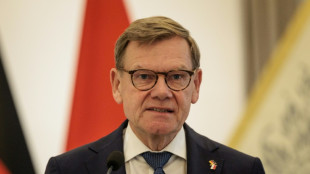
-
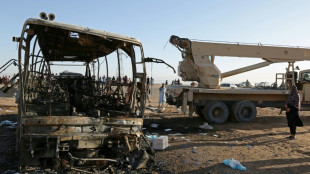 Afghanistan bus crash death toll rises to 78
Afghanistan bus crash death toll rises to 78
-
Historic Swedish church inches closer to new home

-
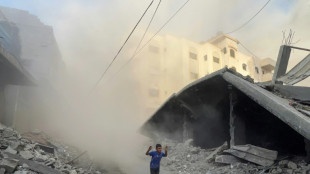 Israel defence minister approves plan to conquer Gaza City
Israel defence minister approves plan to conquer Gaza City
-
More than 20 dead in fresh Pakistan monsoon rains
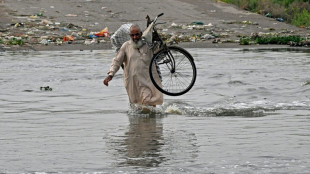
-
 Brazilian goalkeeper Fabio claims world record for most games
Brazilian goalkeeper Fabio claims world record for most games
-
Vienna chosen to host Eurovision 2026

-
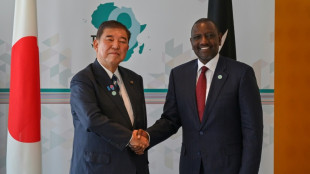 Japan hosts African leaders for development conference
Japan hosts African leaders for development conference
-
Reclusive Turkmenistan bids to go tobacco-free in 2025

-
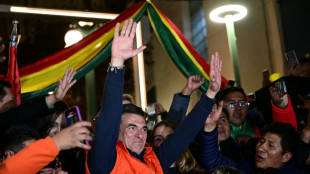 From TikTok to frontrunner, inside Paz's presidential campaign in Bolivia
From TikTok to frontrunner, inside Paz's presidential campaign in Bolivia
-
Chinese mega-hit 'Ne Zha II' enlists Michelle Yeoh to woo US audiences

-
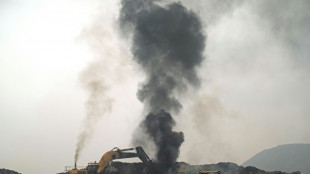 India celebrates clean energy milestone but coal still king
India celebrates clean energy milestone but coal still king
-
US demand for RVs fuels deforestation on Indonesia's Borneo: NGOs

-
 Kneecap rapper faces court on terror charge over Hezbollah flag
Kneecap rapper faces court on terror charge over Hezbollah flag
-
Dutch divers still haul up debris six years after container spill
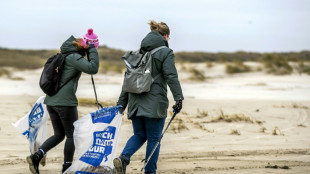
-
 Asian markets dip after US tech slide
Asian markets dip after US tech slide
-
NZ soldier sentenced to two years' detention for attempted espionage

-
 Time to Go: Japan pro board game player retires at 98
Time to Go: Japan pro board game player retires at 98
-
City girls snub traditional Hindu face tattoos in Pakistan
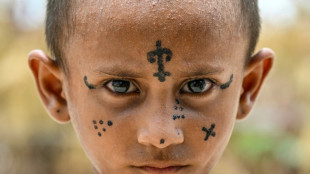
-
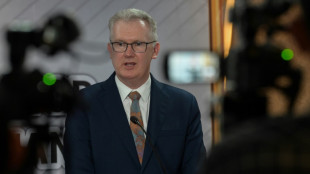 Australia lashes Netanyahu over 'weak' leader outburst
Australia lashes Netanyahu over 'weak' leader outburst
-
Polar bear waltz: Fake Trump-Putin AI images shroud Ukraine peace effort

-
 Sounds serious: NYC noise pollution takes a toll
Sounds serious: NYC noise pollution takes a toll
-
Trump slams US museums for focus on 'how bad slavery was'

-
 US agrees to talks with Brazilian WTO delegates on tariffs
US agrees to talks with Brazilian WTO delegates on tariffs
-
Israel-France row flares over Macron's move to recognise Palestinian state

-
 White House starts TikTok account as platform in US legal limbo
White House starts TikTok account as platform in US legal limbo
-
Syrian, Israeli diplomats met in Paris to discuss 'de-escalation': report
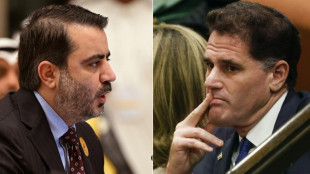
-
 Wanyonyi, the former cattle herder ready to eclipse Rudisha
Wanyonyi, the former cattle herder ready to eclipse Rudisha
-
Mbappe lifts Real Madrid past Osasuna in La Liga opener

-
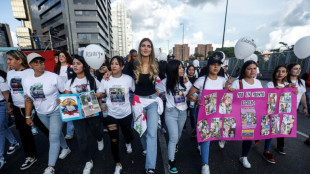 Venezuela says 66 children 'kidnapped' by the United States
Venezuela says 66 children 'kidnapped' by the United States
-
Brazil nixes red World Cup jersey amid political outcry

-
 Real Madrid scrape past Osasuna in La Liga opener
Real Madrid scrape past Osasuna in La Liga opener
-
McIlroy backs 'clean slate' season finale format change

-
 'Call of Duty', 'Black Myth' wow Gamescom trade show
'Call of Duty', 'Black Myth' wow Gamescom trade show
-
Isak says 'change' best for everyone after Newcastle trust broken

-
 Salah makes history with third PFA player of the year award
Salah makes history with third PFA player of the year award
-
Rabiot, Rowe put up for sale by Marseille after bust-up

-
 Weary Swiatek wins US Open mixed doubles opener
Weary Swiatek wins US Open mixed doubles opener
-
Miami fearing Messi blow ahead of Leagues Cup quarter-finals

-
 Trump rules out US troops but eyes air power in Ukraine deal
Trump rules out US troops but eyes air power in Ukraine deal
-
Trump course back on PGA schedule for 2026 season: tour

-
 Mexican boxer Chavez Jr. deported from US over alleged cartel ties
Mexican boxer Chavez Jr. deported from US over alleged cartel ties
-
Former Mali PM Choguel Kokalla Maiga charged with embezzlement, imprisoned
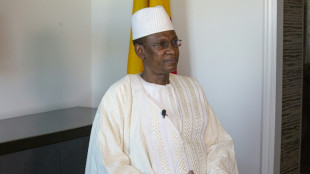
-
 Sinner withdraws from US Open mixed doubles draw
Sinner withdraws from US Open mixed doubles draw
-
Mexican drug lord Zambada to plead guilty in US court

-
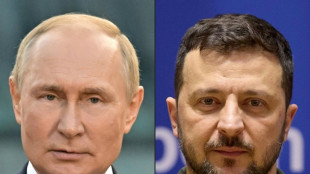 Russians welcome idea of Putin and Zelensky meeting
Russians welcome idea of Putin and Zelensky meeting
-
Spanish PM says 'difficult hours' left in wildfire fight
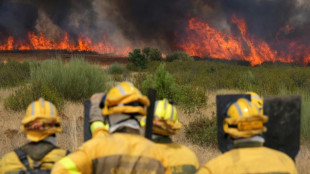
-
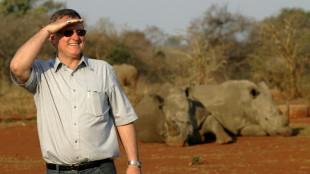 Ex-owner of world's largest rhino farm arrested for trafficking
Ex-owner of world's largest rhino farm arrested for trafficking
-
South Africa ring changes after Australia defeat in Rugby Championship

-
 Sinner withdrawn from US Open mixed doubles draw
Sinner withdrawn from US Open mixed doubles draw
-
Serbia protesters accuse police of abuse and warn of 'spiral of violence'


Over 14 million people could die from US foreign aid cuts: study
More than 14 million of the world's most vulnerable people, a third of them small children, could die because of the Trump administration's dismantling of US foreign aid, research projected on Tuesday.
The study in the prestigious Lancet journal was published as world and business leaders gather for a UN conference in Spain this week hoping to bolster the reeling aid sector.
The US Agency for International Development (USAID) had provided over 40 percent of global humanitarian funding until Donald Trump returned to the White House in January.
Two weeks later, Trump's then-close advisor -- and world's richest man -- Elon Musk boasted of having put the agency "through the woodchipper".
The funding cuts "risk abruptly halting -- and even reversing -- two decades of progress in health among vulnerable populations," warned study co-author Davide Rasella, a researcher at the Barcelona Institute for Global Health (ISGlobal).
"For many low- and middle-income countries, the resulting shock would be comparable in scale to a global pandemic or a major armed conflict," he said in a statement.
Looking back over data from 133 nations, the international team of researchers estimated that USAID funding had prevented 91 million deaths in developing countries between 2001 and 2021.
They also used modelling to project how funding being slashed by 83 percent -- the figure announced by the US government earlier this year -- could affect death rates.
The cuts could lead to more than 14 million avoidable deaths by 2030, the projections found. That number included over 4.5 million children under the age of five -- or around 700,000 child deaths a year.
For comparison, around 10 million soldiers are estimated to have been killed during World War I.
Programmes supported by USAID were linked to a 15-percent decrease in deaths from all causes, the researchers found. For children under five, the drop in deaths was twice as steep at 32 percent.
USAID funding was found to be particularly effective at staving off preventable deaths from disease.
There were 65 percent fewer deaths from HIV/AIDS in countries receiving a high level of support compared to those with little or no USAID funding, the study found. Deaths from malaria and neglected tropical diseases were similarly cut in half.
- 'Time to scale up' -
After USAID was gutted, several other major donors including Germany, the UK and France followed suit in announcing plans to slash their foreign aid budgets.
These aid reductions, particularly in the European Union, could lead to "even more additional deaths in the coming years," study co-author Caterina Monti of ISGlobal said.
But the grim projections for deaths were based on the current amount of pledged aid, so could rapidly come down if the situation changes, the researchers emphasised.
Dozens of world leaders are meeting in the Spanish city of Seville this week for the biggest aid conference in a decade. The US, however, will not attend.
"Now is the time to scale up, not scale back," Rasella said.
Before its funding was slashed, USAID represented 0.3 percent of all US federal spending.
"I think most people would support continued USAID funding if they knew just how effective such a small contribution can be to saving millions of lives."
S.Gantenbein--VB

